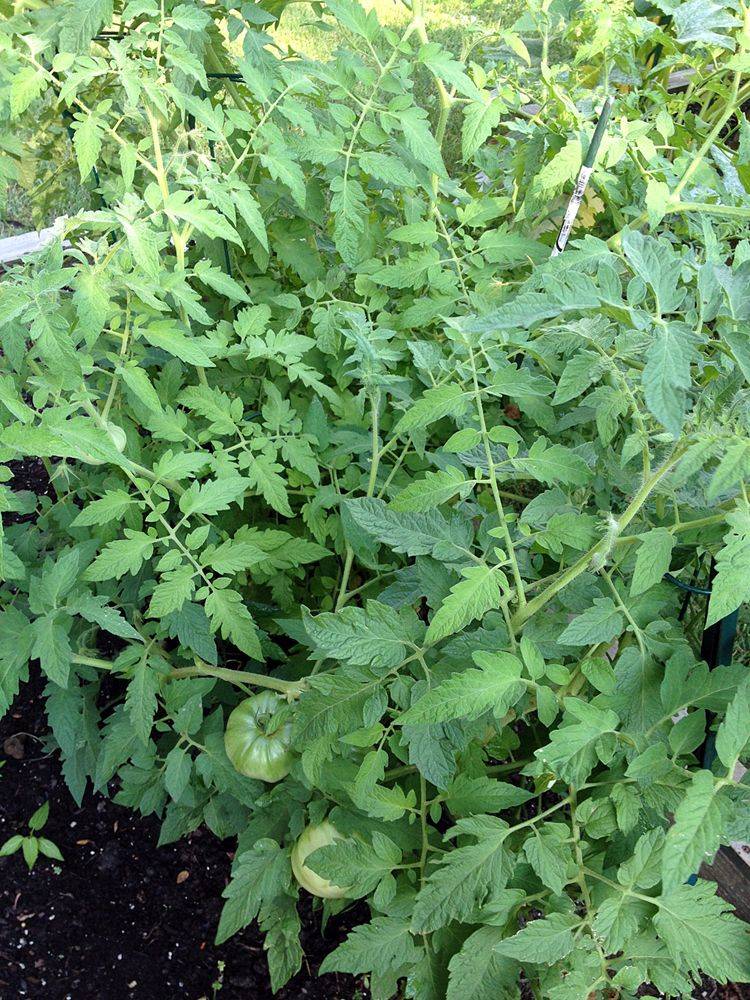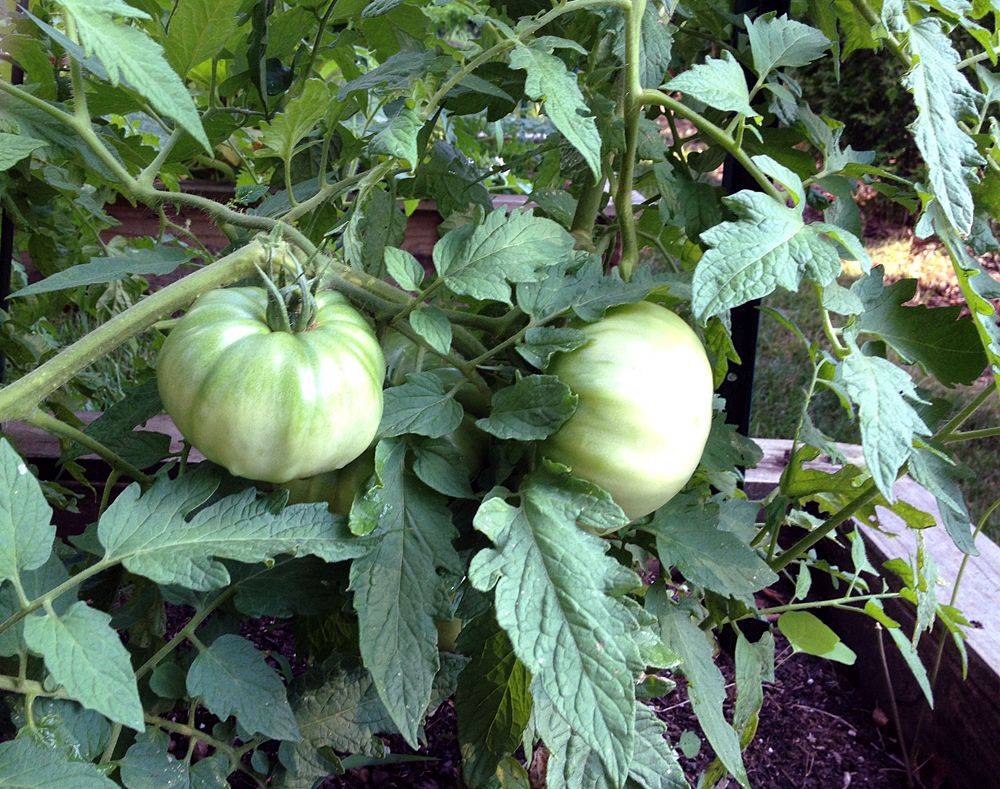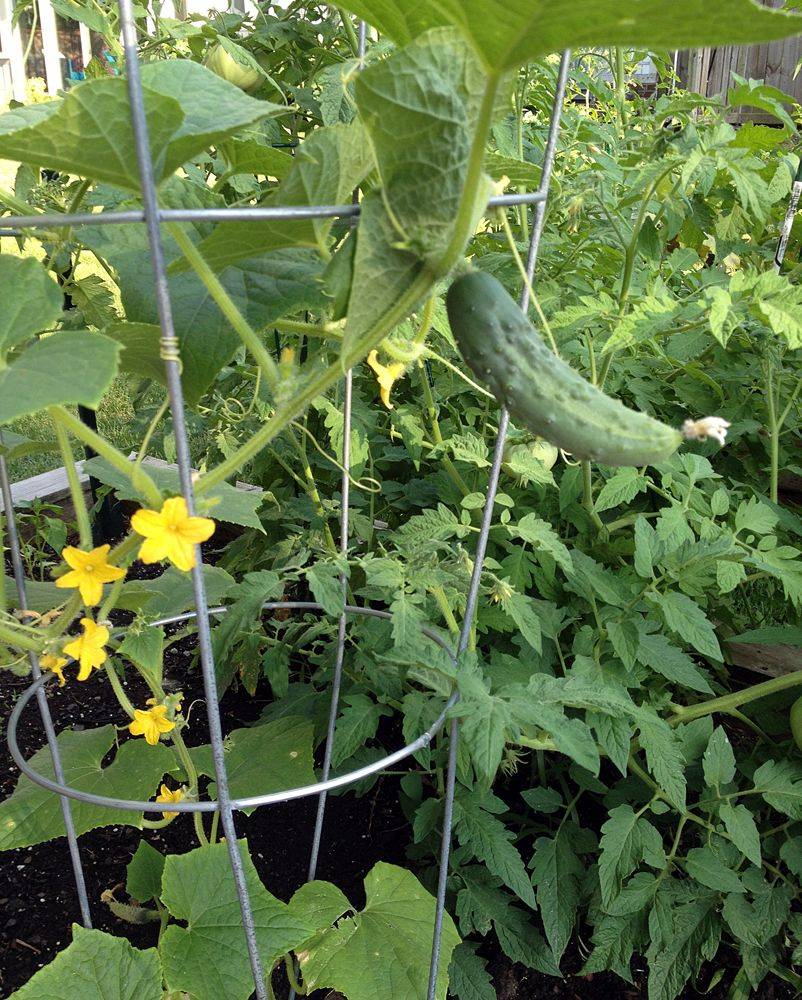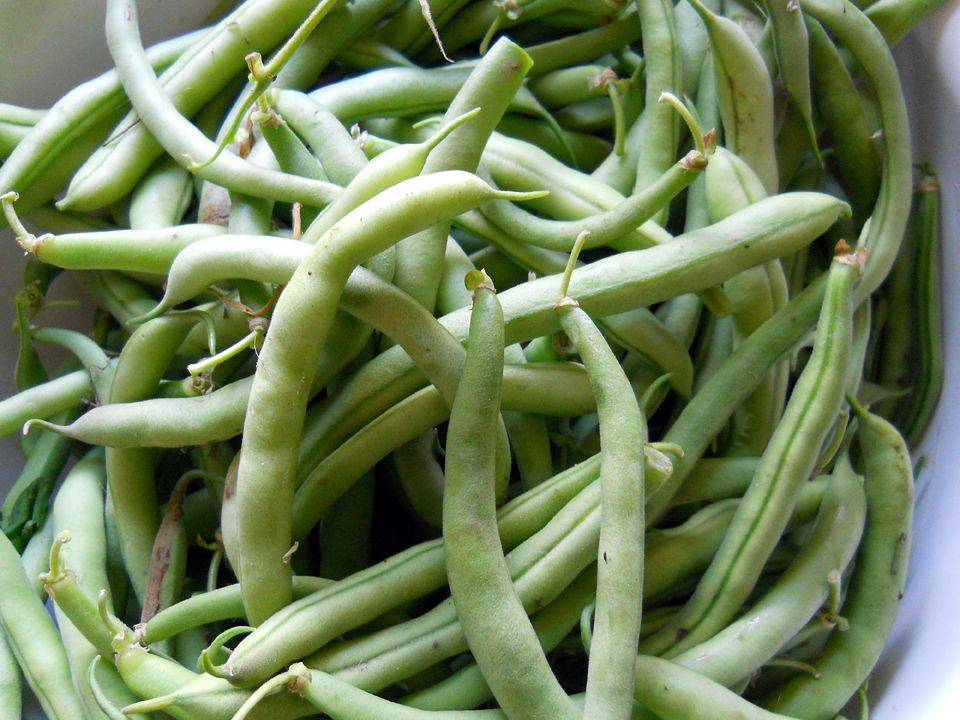When I was little and I asked my mother where babies came from, she would always say, “I picked you from the cabbage patch.” Even as a little girl, I knew this wasn’t true, but in retrospect, it wasn’t far off either. I’m not sure what my first memory of food is, but I have vivid and detailed memories of growing up in my mother’s garden. I can remember all the original trees in the orchard, the old strawberry bed that laid alongside the grapes that grew on the trellis, and my grandfather coming out to pick blackberries in the woods or fish for turtles (for turtle soup, of course).
The garden required a lot of work from everyone in the family, but July is especially hard; the garden can produce so much, and without constant care and tending. Any novice gardener is likely to throw up his or her hands in frustration. My mother (who has over fifty years of gardening experience) and I put together a priority list for those braving the garden through July.
#5: Tilling
 The weeds in July can come on with a vengeance, so if you walk out the door only to find that your perfectly lined garden now resembles a jungle, go ahead and use your row tiller (at shallow depth) to get them under control. This is not a recommended as a solution though. Tilling pulls the nutrients from the ground to the top and away from the roots, so it should only be done once as a way to get the weeds under control. Also, do not water after tilling, as this will create a seal over the top of your soil after you’ve just aerated it.
The weeds in July can come on with a vengeance, so if you walk out the door only to find that your perfectly lined garden now resembles a jungle, go ahead and use your row tiller (at shallow depth) to get them under control. This is not a recommended as a solution though. Tilling pulls the nutrients from the ground to the top and away from the roots, so it should only be done once as a way to get the weeds under control. Also, do not water after tilling, as this will create a seal over the top of your soil after you’ve just aerated it.
Note: If your garden is small enough to use a hoe, that’s preferable. Tilling in this situation is only recommended for larger gardens.
#4: Weed Control
The tilling did the majority of the work, but now it is up to you to keep the garden maintained. Only a few minutes each day will prevent the weeds from taking over. Remember: Gardening, much like working out, is a lifestyle choice (and burns calories).
#3: Watering
 The July sun will evaporate water at a rapid rate, but too much watering, or watering the wrong way, can be equally detrimental. There is no wrong time of day to water: at night, the water lingers on the plants and during the day it can scorch the leaves. The best way to water is by ground watering.
The July sun will evaporate water at a rapid rate, but too much watering, or watering the wrong way, can be equally detrimental. There is no wrong time of day to water: at night, the water lingers on the plants and during the day it can scorch the leaves. The best way to water is by ground watering.
Ground watering is when you spray the water around the plant and avoid the leaves altogether. Since the water enters the plant through the roots, why water the leaves? If you’re able to carve out small trenches between rows, this is an incredibly effective way to water your garden without hurting the plants. Also, be careful not to overwater. If the soil is still moist, skip a day.
Note: Tomatoes and green beans are very water-sensitive. Tomato plants don’t want to be sprayed; their leaves are rather sensitive to water. It’s best to water the ground around them. Green beans have bacteria on their leaves that kill the plant when you touch it while wet. Green beans should only be picked after the water and dew have evaporated completely.
THESE ARE THE 2 MOST IMPORTANT TO REMEMBER:
#2: Harvest
 In July, a typical garden will produce fruit every day. Pick it immediately! Going on vacation for a week without someone checking your garden is one of the fastest ways to kill it. The mature fruit stresses the plant, forcing it to focus all its energy on the overripe fruit instead of producing more. If you’re leaving town, have a friend garden-sit. They don’t have to keep the fruit; they can compost it or give it away. To keep the plant alive and producing it has to be picked promptly.
In July, a typical garden will produce fruit every day. Pick it immediately! Going on vacation for a week without someone checking your garden is one of the fastest ways to kill it. The mature fruit stresses the plant, forcing it to focus all its energy on the overripe fruit instead of producing more. If you’re leaving town, have a friend garden-sit. They don’t have to keep the fruit; they can compost it or give it away. To keep the plant alive and producing it has to be picked promptly.
Note: Peppers, cucumbers, and tomatoes are all plants that will expire very quickly if not picked right away.
#1: Bugs
 Mature fruits and veggies attract bugs, and in July, the bugs can quickly consume a garden. Pay extra attention to the way your plants look and what may be lingering on them. If you suspect a pest issue with your garden, take a few pictures of the leaves and go into your local gardening center for advice immediately. Caught early, you can avoid garden devastation.
Mature fruits and veggies attract bugs, and in July, the bugs can quickly consume a garden. Pay extra attention to the way your plants look and what may be lingering on them. If you suspect a pest issue with your garden, take a few pictures of the leaves and go into your local gardening center for advice immediately. Caught early, you can avoid garden devastation.
Having a garden can create a wonderful abundance of produce, but comes with more work than most people expect. Focusing on the two most important areas will allow you to enjoy the bounty with the least amount of hassle.
So, maybe I wasn’t born in a cabbage patch, but I did come from the raspberry bushes, the strawberry beds, and the tomato plants.








